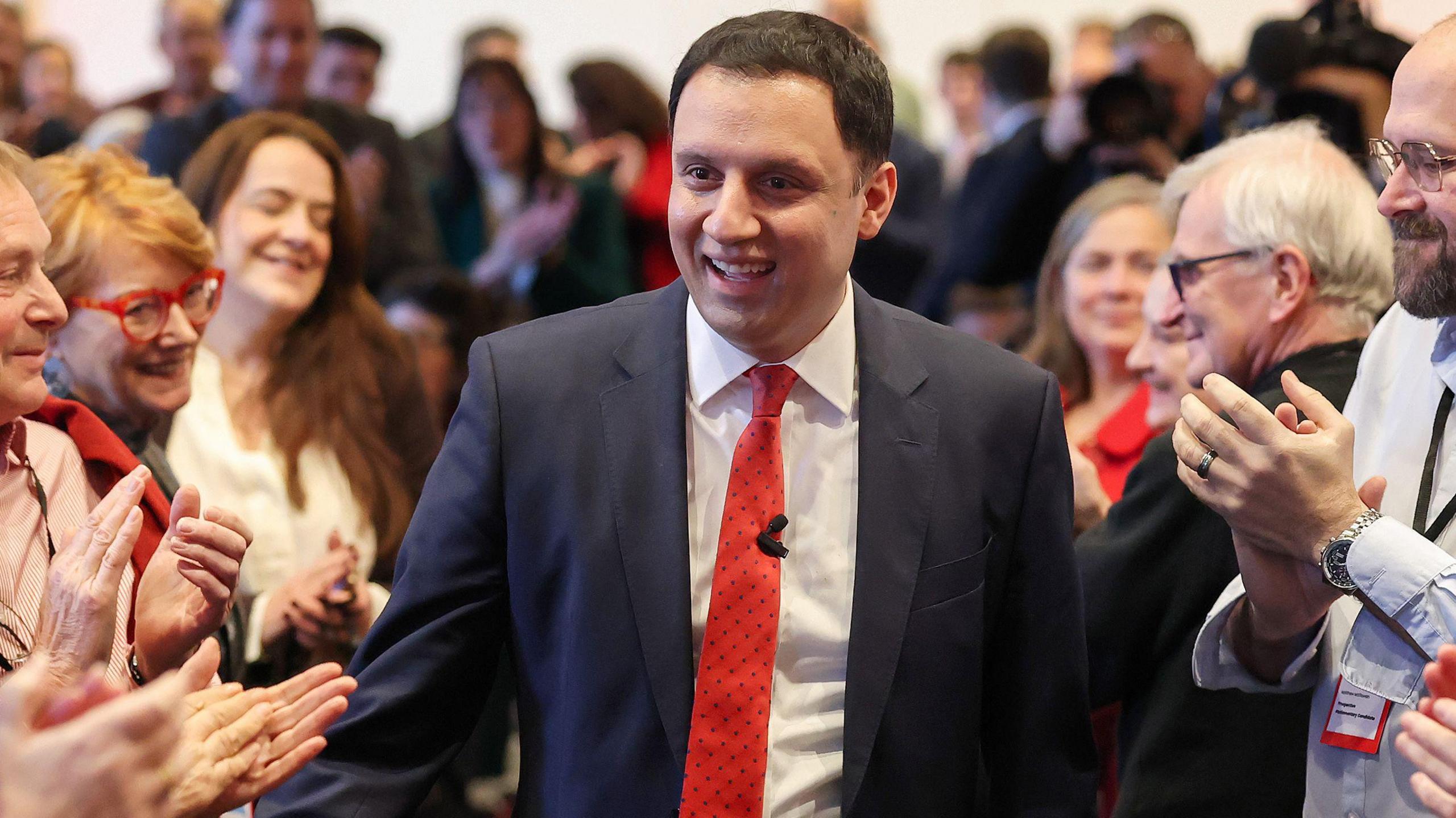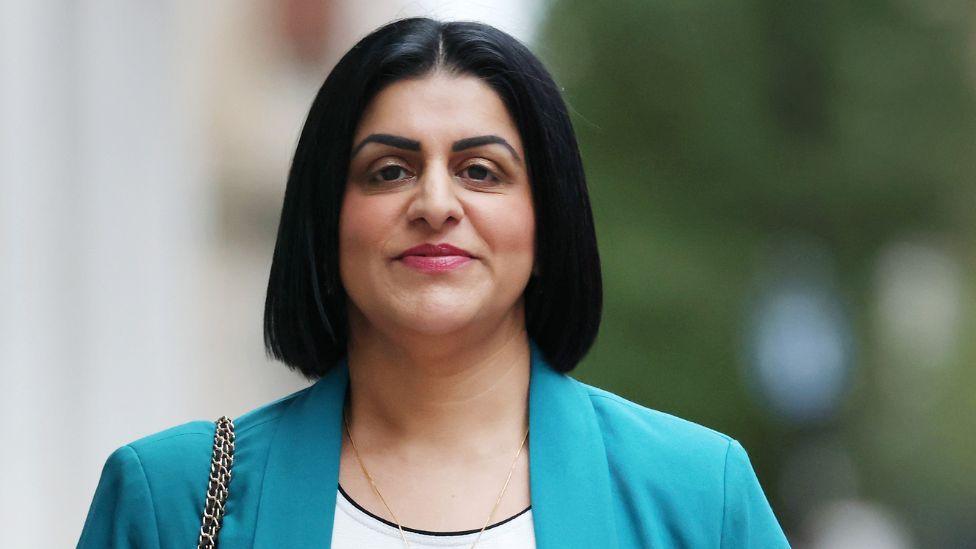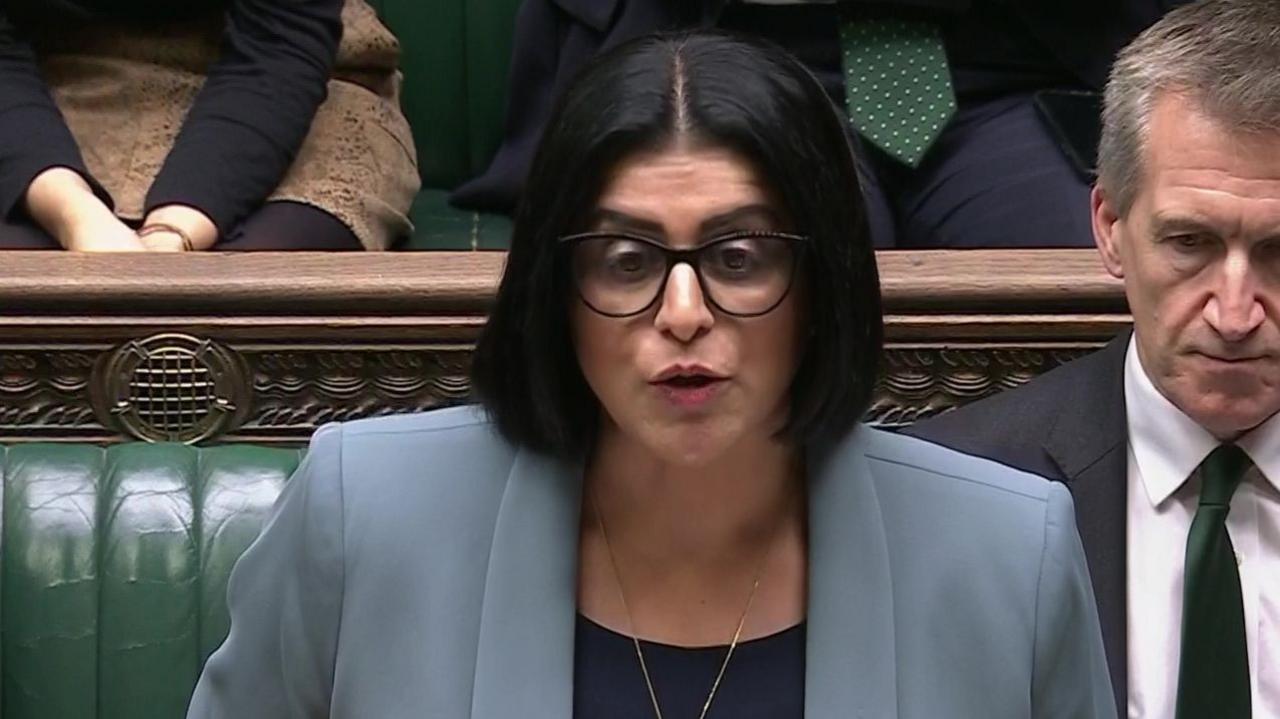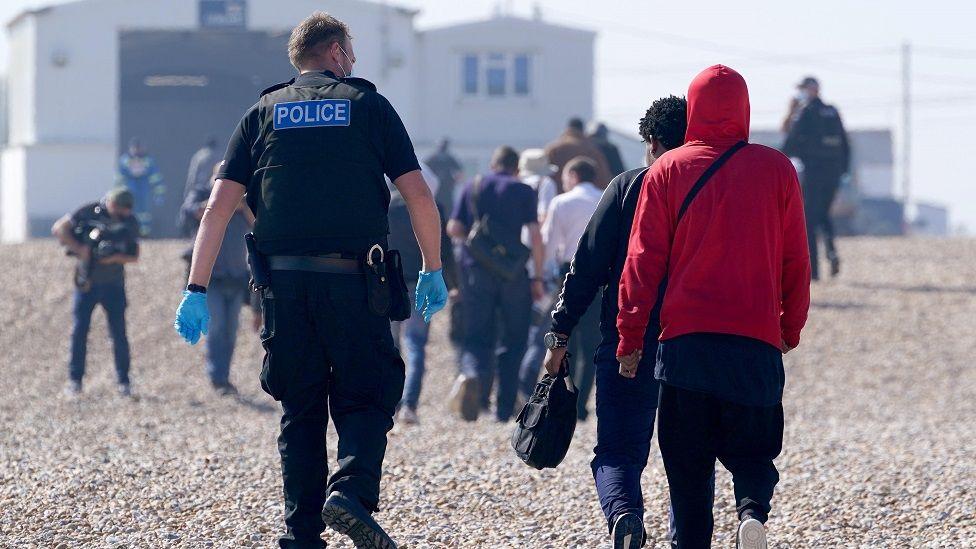Scotland cannot rely on migrants to fill social care jobs - Sarwar

Anas Sarwar was at Scottish Labour's policy conference in Edinburgh
- Published
Scotland cannot rely on migrants to fill social care jobs, Scottish Labour leader Anas Sarwar has said.
His comments come after a social care body said the UK government's immigration proposals would have a "profoundly negative impact" on Scotland's care sector.
Sarwar said the UK's "broken immigration system" needed to be fixed, and better wages were needed to attract Scottish workers to social care roles.
He was speaking after Scottish Labour's policy conference in Edinburgh, where he announced plans for a new specialist mental health service and more support for community policing.
Sarwar told delegates he was determined to deliver "big, bold and meaningful change" if his party wins next May's Holyrood election.
The conference came at the end of a week where Home Secretary Shabana Mahmood announced a string of changes to the immigration system.
She is proposing that workers on post-Brexit health and social care visas wait 15 years before permanent settlement - up from five years currently.
Some migrants to face 20 year wait for settled status
- Published2 days ago
Immigration changes will 'profoundly impact' Scottish care workers
- Published1 day ago
Scottish Care, which represents independent social care services, says the changes would deter international workers who have a "vital role" filling jobs in the sector.
It urged Scottish Labour to challenge the proposal from the UK Labour government, branding them "insensitive to Scotland's distinct needs".
Sarwar told BBC Scotland News that he accepted there was "a crisis in social care", but said the answer was to create clear career pathways in Scotland.
He said: "The way that we address that crisis is properly funding social care, and recognising the important role it plays in the integrated health and social care system.
"But it also means giving value to social care workers.
"I do not think it appropriate to pay poverty wages to social care workers then rely on immigrants to come and fill those jobs.
"Because we are not properly paying or skilling individuals in our own country to take those jobs."

Scottish Care said immigration changes would deter "vital" international workers in the care sector
Earlier this week, Scottish Care's chief executive, Donald Macaskill, said he was "deeply concerned" by the UK Government's plans.
"Scotland's care sector is already facing acute workforce shortages," he said.
"Forcing dedicated care workers to wait up to 15 years for settlement, and tying their future to restrictive criteria, will deter much-needed talent from staying in Scotland."
What are the UK's proposed immigration changes?
Settlement, also known as Indefinite Leave to Remain (ILR), allows someone to live in the UK permanently, work without restrictions and access public services.
Currently, most work and family visa holders can apply for settlement after five years.
Under the proposed changes the standard wait will be 10 years - with a range of criteria that would lengthen or shorten that period.
Legal migrants who claim benefits for less than 12 months will have to wait 15 years.
People who arrived on post-Brexit health and social care visas would have to wait 15 years.
Migrants reliant on benefits for more than 12 months face a 20-year wait for settlement, four times more than the current period and the longest in Europe.
The proposals will apply to the estimated 2.6 million who arrived since 2021, not to people who had already obtained settlement.

Shabana Mahmood announced wide-ranging reforms of the asylum and immigration system
Sarwar said he supported the UK government's proposals, calling for a managed migration system with "the right balance between skills and immigration".
He said Scotland would always be "an open welcoming and tolerant nation", but it needed a skills system that does not rely on migrant workers.
He said: "We spend tens of thousands of pounds rightly putting people through university so they can get the skills they need.
"But once they get them far too many are having to emigrate to get the jobs.
"Whether that be nurses, doctors or teachers I want those people to stay here in Scotland."
'Bold and meaningful change'
Meanwhile, the Scottish Labour leader also pledged to create the country's "newest emergency services", to provide specialist care to those suffering from a mental health crisis.
This Mental Health Emergency Response Service would help free up police officers' time, he added, releasing up to 360 officers for frontline policing.
Promising he would lead "a government that works as hard as the people it serves", Mr Sarwar said his party would deliver 9,000 new apprenticeships if voted into power next May.
He said the election will be a choice between "more failure, more incompetence and more waste" under John Swinney and the SNP and "big, bold and meaningful change with me and Scottish Labour".
The Scottish Government said the UK Government's "hostile and restrictive migration policies" were damaging Scotland's health and social care sector.
Health Secretary Neil Gray said: "In Scotland we need a migration system that works for our NHS and social care sector.
"Until we have the full powers over migration that will come with independence, we will do all we can within the devolved powers of the Scottish Parliament to mitigate the UK Government's harmful approach to migration."
The UK government plans to roll out changes from spring 2026, after a consultation ends on 12 February.
It comes after Mahmood also revealed a sweeping overhaul of the UK's asylum system on Monday.
This includes plans to end permanent refugee status and replace it with temporary status subject to review every 30 months.
- Published5 days ago

- Published5 days ago

- Published5 days ago
